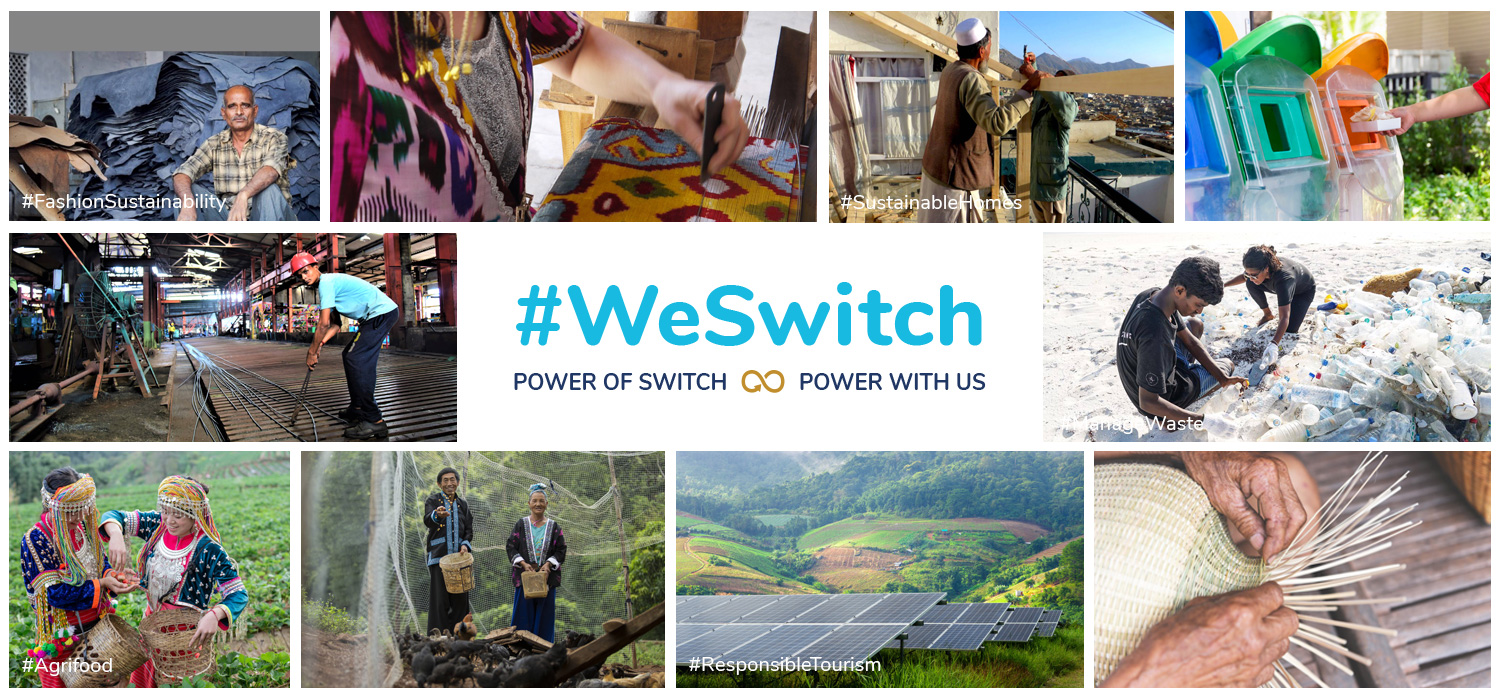Rapid economic growth in Asia and Central Asia has lifted many countries out of poverty. This has come at a cost of increased use of natural resources, growing GHG emissions and amounts of waste. Sustainability today is no longer simply about increasing efficiencies or complying with regulations. It is about making fundamental changes in the way business is done and the way the world consumes. Results can only be achieved rethinking our business models and supply chains and designing new consumption patterns.
That is why the European Union launched the SWITCH-Asia programme in 2007. The programme promotes Sustainable Consumption and Production (SCP). SCP aims at improving the overall environmental performance of products throughout their life cycle, stimulates demand for better products and production technologies and helps consumers make informed choices.
The European Union is committed to tackle these global challenges together with its partners in Asia and Central Asia.
Launched in 2007, its SWITCH-Asia programme has achieved more than a decade of progress on SCP in 24 countries in the region. This has been possible through the joint efforts of the three SWITCH-Asia components: SCP Facility, Policy Advocacy Facility and grant projects.
This content is hosted by a third party (www.youtube.com). By viewing the external content you accept the terms and conditions of www.youtube.com.
The regional programme is based on an innovative programme design: grant projects addressing SMEs, business intermediaries and consumers are implementend along with a policy advocacy component plus a SCP Facilty that link projects and stakeholders to policy makers.
SWITCH-Asia is the largest SCP programme supported by the European Union in Southeast Asia, South Asia, Central Asia, Mongolia and China. Nearly EUR 300 million are invested towards promoting sustainable consumption and production (SCP) in Asia and Central Asia.
About 130 projects are funded in the region over a period of 14 years of which 22 new ones active as of 2020. Over 500 Asian and European non-for-profit partners, about 100 private sector associates and 80.000 Asian micro, small and medium-sized enterprises (MSMEs) are supported.
